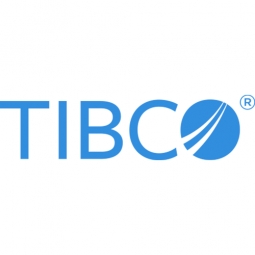Download PDF
Yakult’s New Product Sales in the Netherlands Increase 15 to 20% with Spotfire
Technology Category
- Application Infrastructure & Middleware - Data Visualization
- Analytics & Modeling - Predictive Analytics
- Application Infrastructure & Middleware - Data Exchange & Integration
Applicable Industries
- Consumer Goods
- Food & Beverage
Applicable Functions
- Sales & Marketing
- Business Operation
Services
- Software Design & Engineering Services
- System Integration
The Challenge
As Yakult Market Analyst Egbert Jan Vierkant explains, in the first several years in Europe, Yakult sales grew steadily, but suddenly, after competitors began to enter the market, something surprising happened. “We had an extraordinary sales increase, especially in the Netherlands.” The company wanted to know why, but tools like Excel were not suitable. “We were suffering from time-consuming analysis, mistakes, and spreadsheets. We had multiple data sources that we could not bring together. We were spending time on gathering and collecting information instead of on thinking about the business.”
About The Customer
Yakult is the world’s leading probiotic beverage, created in Japan and produced by Yakult Honsha, the world’s pioneer in probiotics. The company’s portfolio includes a range of consumer, cosmetic, and pharmaceutical products. Yakult has a significant presence in Europe, where it has experienced steady sales growth. The company is known for its innovative approach to health and wellness, leveraging scientific research to develop products that promote digestive health. Yakult's commitment to quality and customer satisfaction has made it a trusted brand in the probiotic market.
The Solution
Yakult chose TIBCO Spotfire® for many reasons. “If you want to distinguish sales drivers from non-drivers in a very dynamic environment in which you’re doing a lot of things simultaneously, you must be able to collect all the information and look at it from all perspectives,” says Mr. Vierkant. “You have to zoom in by region, look at trends at all the retailers. Spotfire makes these perspectives feasible. You can quickly find what is working and what is not.” Yakult was able to identify the elements in its marketing mix that drove the sudden category growth. Applying this knowledge to future marketing budget decisions fueled additional growth. “When I met Spotfire, it was like coming home,” says Vierkant. “How was it possible that this tool hadn’t been invented earlier because it’s so simple and yet brilliant? If we were still struggling with spreadsheets, we would be an average company, and retailers would have less interest in us. Today we are able to quickly reveal newsworthy insights about our market and immediately make them visual for retailers.”
Operational Impact
Quantitative Benefit
Related Case Studies.
.png)
Case Study
Improving Vending Machine Profitability with the Internet of Things (IoT)
The vending industry is undergoing a sea change, taking advantage of new technologies to go beyond just delivering snacks to creating a new retail location. Intelligent vending machines can be found in many public locations as well as company facilities, selling different types of goods and services, including even computer accessories, gold bars, tickets, and office supplies. With increasing sophistication, they may also provide time- and location-based data pertaining to sales, inventory, and customer preferences. But at the end of the day, vending machine operators know greater profitability is driven by higher sales and lower operating costs.

Case Study
The Kellogg Company
Kellogg keeps a close eye on its trade spend, analyzing large volumes of data and running complex simulations to predict which promotional activities will be the most effective. Kellogg needed to decrease the trade spend but its traditional relational database on premises could not keep up with the pace of demand.

Case Study
HEINEKEN Uses the Cloud to Reach 10.5 Million Consumers
For 2012 campaign, the Bond promotion, it planned to launch the campaign at the same time everywhere on the planet. That created unprecedented challenges for HEINEKEN—nowhere more so than in its technology operation. The primary digital content for the campaign was a 100-megabyte movie that had to play flawlessly for millions of viewers worldwide. After all, Bond never fails. No one was going to tolerate a technology failure that might bruise his brand.Previously, HEINEKEN had supported digital media at its outsourced datacenter. But that datacenter lacked the computing resources HEINEKEN needed, and building them—especially to support peak traffic that would total millions of simultaneous hits—would have been both time-consuming and expensive. Nor would it have provided the geographic reach that HEINEKEN needed to minimize latency worldwide.

Case Study
Energy Management System at Sugar Industry
The company wanted to use the information from the system to claim under the renewable energy certificate scheme. The benefit to the company under the renewable energy certificates is Rs 75 million a year. To enable the above, an end-to-end solution for load monitoring, consumption monitoring, online data monitoring, automatic meter data acquisition which can be exported to SAP and other applications is required.

Case Study
Coca Cola Swaziland Conco Case Study
Coco Cola Swaziland, South Africa would like to find a solution that would enable the following results: - Reduce energy consumption by 20% in one year. - Formulate a series of strategic initiatives that would enlist the commitment of corporate management and create employee awareness while helping meet departmental targets and investing in tools that assist with energy management. - Formulate a series of tactical initiatives that would optimize energy usage on the shop floor. These would include charging forklifts and running cold rooms only during off-peak periods, running the dust extractors only during working hours and basing lights and air-conditioning on someone’s presence. - Increase visibility into the factory and other processes. - Enable limited, non-intrusive control functions for certain processes.






